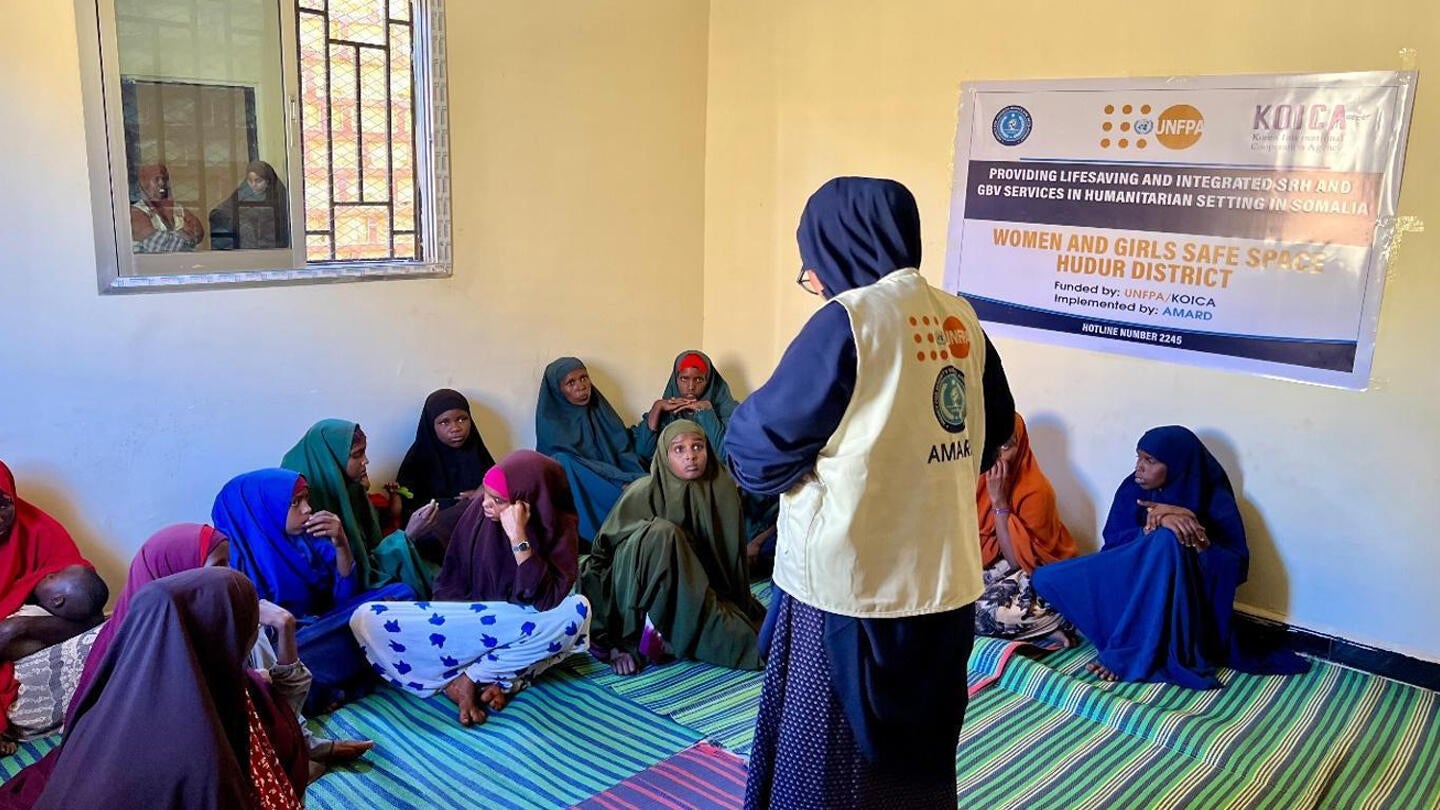In the wake of violence and displacement in the rural areas of Bay and Bakool, communities were left to pick up the pieces of shattered lives. Among those affected was 25-year-old Yasmin, a mother of two, who carried the weight of trauma and anxiety. Living in a camp with limited resources, Yasmin’s struggles seemed insurmountable. But a lifeline appeared through a psychosocial support program, funded by The Korea International Cooperation Agency (KOICA), implemented by UNFPA, and supported by AMARD, that would help her—and many other women—begin to heal.
A Hesitant Start: Finding Hope in a Safe Space
At first, Yasmin was reluctant to join the program. The scars of her experiences made it difficult to open up, and she feared that she would not find understanding in a room full of strangers. However, after a conversation with a friend, she decided to attend a session. What she found was more than just a place for therapy; it was a safe space where her pain could be shared and heard.
“I felt so alone, but this place felt like home,” Yasmin recalled, describing her first encounter with the program. The compassionate counselor created an environment where Yasmin could speak freely, and the presence of others with similar struggles helped her to begin the healing process.
The Power of Shared Stories: Coping Strategies and Community Support
As Yasmin attended more group sessions, she learned coping strategies and tools to manage her anxiety and trauma. Hearing the stories of other women in the group provided a sense of solidarity she had longed for. "Hearing other women's stories made me realize I wasn't alone in this fight," Yasmin shared. “It gave me the strength to keep going.”
With each session, Yasmin rediscovered her inner strength. She began to feel more connected to herself and others, and her once-isolated world gradually expanded. The camaraderie within the group, combined with the professional support, gave her the confidence to become an active part of the program’s outreach efforts.
“I want to help others find their voice, just like I did,” Yasmin emphasized, reflecting on her transformation from a participant to a mentor. As she mentored fellow survivors and contributed to spreading awareness about mental health, she became a beacon of hope for others in the community.
The Ripple Effect of Healing: Over 200 Women and Girls Supported
Yasmin’s journey is a testament to the power of access to psychosocial support, and her story is just one of many. Over 200 women and girls in the region have benefitted from this program, all of whom have found comfort, healing, and the tools to move forward in their lives.
"This program helped me heal, but it also gave me the chance to help others heal,” Yasmin said. “We are not just surviving; we are thriving together.”
The program, made possible through KOICA’s generous support and implemented by UNFPA with support from AMARD, has brought not just mental health services, but hope to communities left reeling by conflict. Yasmin’s experience serves as a powerful reminder that, with the right resources and community support, recovery is possible—even in the most challenging circumstances.
A Future of Solidarity and Strength
Yasmin’s words resonate beyond her personal journey: “Together, we can heal and uplift each other.” Her story is a beacon of the transformative power of community and mental health support, proving that even in the darkest of times, access to compassionate care can bring light. The healing and empowerment provided by the program—through KOICA’s funding and the efforts of UNFPA and AMARD—show that the road to recovery is a collective one, where hope grows stronger with every step shared.


